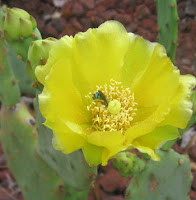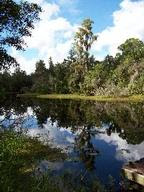Darke Designs

Rick Darke’s keynote speech at last week’s FNPS Conference was a richly layered presentation beautifully illustrated with photographs that delivered. He arrived at the conference early so he could go on one of the field trips and incorporate local information and pictures, like the one on the right. His talk, “Liveable Florida: Native by Design," included ideas for designing in gardens, but extended beyond garden borders to suggest designs, or plans, that contribute to a more sustainable world. Although he had worked for many years at Longwood Gardens, Mr. Darke discovered that nothing from his experience there was helpful in designing his own eighth of an acre in Delaware. So he made a decision to go out into the woods there and learn directly from the source. Over the course of a year he took numerous photos of the exact same spot in in the woods, in all seasons, all kinds of weather, all times of day. The drama and visual interest of that study which was revealed through t







